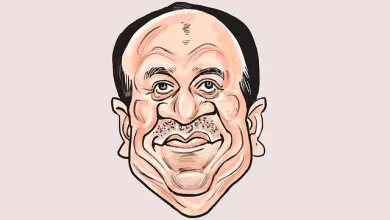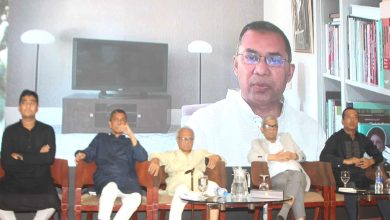Record rise in candidates’ wealth

TIB analysis on affidavits reveals Jan 7 polls to see highest number of aspirants with liquid assets of Tk 1cr or more
The 12th national election will witness the highest number of candidates with movable or liquid assets of Tk 1 crore or more, the Transparency International Bangladesh has found.
This time, the figure is 571, up from 274 in the 2008 parliamentary election, which saw the Awami League’s landslide victory. In 2018, the number of candidates with movable assets of over Tk 1 crore was 522.
Movable or liquid assets refer to bank deposits, fixed deposits, savings certificates, government bonds and cash. Real estates are not liquid assets.
The Awami League saw the highest rise in the number of candidates with liquid assets of over Tk 1 crore. In 2008, 28 percent of the AL candidates had liquid assets of over Tk 1 crore, and in 2024, it is 86.96 percent. This constitutes 235 of the 286 AL nominees running for parliament.
In comparison, the share of double-digit millionaires among Jatiyo Party candidates went down from 36 percent in 2008 to 20 percent in 2024.
The TIB released its findings at a press conference at its office in the capital yesterday. These findings are based on analyses of the affidavits submitted by aspirants to the Election Commission.
As many as 18 candidates have movable or liquid assets worth over Tk 100 crore.
These include jute minister Golam Dastagir Gazi with Tk 1,345.77 crore, independent candidate SAK Ekramuzzaman with Tk 421.16 crore, Prime Minister’s Private Industry and Investment Adviser Salman F Rahman with Tk 315.76 crore, and AL nominee Abu Zafar Mohammad Shafi Uddin with Tk 306.68 crore.
They are vying for Narayanganj-1, Brahmanbaria-2, Dhaka-1 and Cumilla-8 constituencies respectively.
Food Minister Sadhan Chandra Majumdar saw the highest increase in wealth over the last 15 years. His wealth rose by 6,350.18 percent.

Since 2018, Law Minister Anisul Huq saw his wealth go up by 1,063 percent, the most among ministers and state ministers.
Over the past five years, Commerce Minister Tipu Munshi had the highest bump in income among ministers and state ministers. His annual income increased by 2,131.12 percent.
Among lawmakers, Anwar Hossain from Pirojpur-2 had the highest bump in income over the past 15 years, with his annual earnings rising by 7,116.3 percent.
Candidates possessing between Tk 200 crore and Tk 300 crore in liquid assets include Yusuf Abdullah Harun from Cumilla-3 (Tk 277.61 crore), Dilip Kumar Agarwala from Chuadanga-1 (Tk 276.19 crore), Abdul Momin Mondol from Sirajganj-5 (Tk 253.24 crore) and Gazi Golam Mortoza from Narayanganj-1 (Tk 233 crore).
Sirajul Islam Mollah from Narsingdi-3, Sayeed Khokon from Dhaka-6, Abdul Kader Azad from Faridpur-3, Afruza Bari from Gaibandha-1, Selima Ahmed from Cumilla-2, Mahmuda Begum and Muhammad Abdullah from Lakshmipur-4, Nur Mohammed from Jamalpur-1, Dewan Zahid Ahmed from Manikganj-2, and Finance Minister AHM Mustafa Kamal from Cumilla-1 have between Tk 100 crore and Tk 200 crore in movable wealth.
Over 57.3 percent of the aspirants running for parliament are business people, and only 2.86 percent are politicians, TIB adds.
The share of businessmen among candidates has gone up with every consecutive election. In 2008, it was 47.4 percent.
“If more businessmen get into the parliament, they can take over institutions, like we have seen with the banking sector,” said Dr Iftekharuzzaman, executive director of TIB.
Women candidates make up only 5.1 percent of the contestants.
A total of 170 candidates, or 9.27 percent, have pending cases against them.
Eminent rights activist Sultana Kamal said, “The affidavits give us a picture of the widening inequality in the country. And this is not a good message. Only a handful are witnessing development, and they will be sitting in the parliament. This will lead to a situation of tyranny of the minority over the majority.”
Iftekharuzzaman said the wealth statements should be analysed. “The Election Commission, Anti-Corruption Commission and National Board of Revenue can analyse these even after the elections. Lawmakers can be brought to book even after an election if irregularities are found.”
“The Anti-Corruption Commission says that it only investigates when there is a specific complaint. But it can take up suo moto investigations,” he said.


